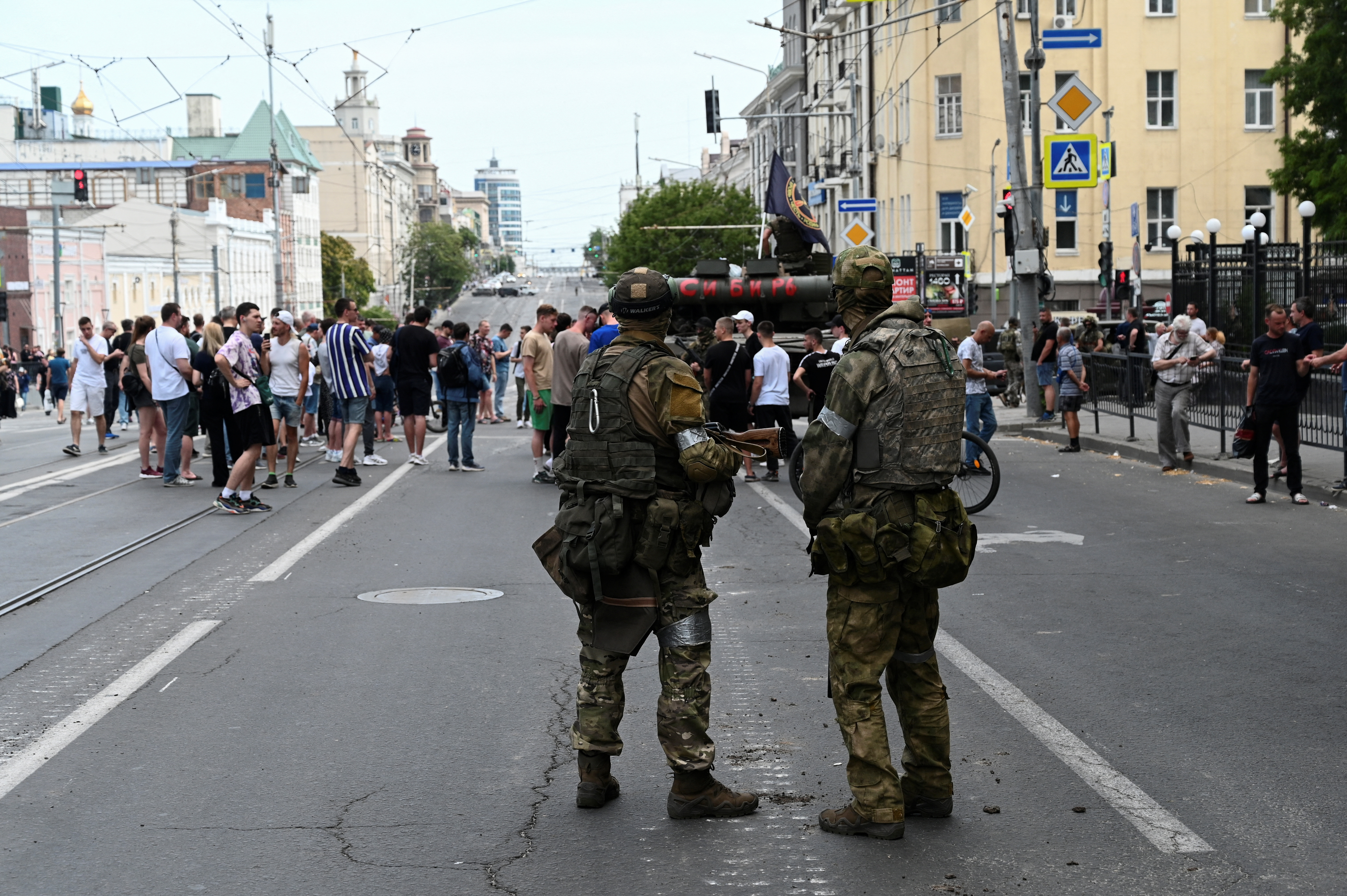The Wagner mercenary group is completing its handover of weapons to Russia’s regular armed forces, the Russian Defence ministry said on Wednesday, more than two weeks after the group staged a brief armed mutiny.
In a statement accompanied by video showing tanks, rockets and other heavy weapons, the ministry said Wagner had transferred more than 2,000 pieces of equipment and over 2,500 tonnes of ammunition.
If genuine, the handover is the most concrete sign to date that Wagner – whose fighters have waged some of the fiercest and bloodiest battles of Russia’s war in Ukraine – is pulling out of combat operations there.
It follows a deal with Russian President Vladimir Putin under which Wagner and its leader Yevgeny Prigozhin, who had savagely criticised Russia’s defence chiefs over their conduct of the war, called off their short-lived mutiny last month.
During last month’s revolt, the mercenaries took control of the southern Russian city of Rostov-on-Don and shot down an unspecified number of military helicopters, killing their pilots, as they advanced towards Moscow.
The mutiny is widely perceived as having posed the most serious challenge to Putin since he assumed Russia’s presidency on the last day of 1999.
While the rebellion was in progress, Putin described it as a “stab in the back” and an act of treason that risked plunging the country into civil war.
But under the agreement that ended it, the Kremlin said that in order to avoid bloodshed, Prigozhin would leave for Belarus and a criminal case against him would be dropped. His fighters were given the option of joining him in exile, joining Russia’s regular forces or going home.
The defence ministry said the weapons transfer was taking place “in accordance with the plan”.
Much remains unclear about the implementation of the agreement, including Prigozhin’s whereabouts. The Kremlin said this week that Putin had met Prigozhin for about three hours on June 29, five days after the mutiny.
Flight-tracking data showed a plane linked to Prigozhin left Moscow and headed towards Belarus on Tuesday evening, but it was not clear if he was on board.
Uncertainty also surrounds the future of Prigozhin’s wider business empire in Russia and Wagner’s extensive operations in parts of the Middle East and Africa, including Syria, Mali and the Central African Republic.
Prigozhin has said the rebellion was not aimed at overthrowing the government but at “bringing to justice” the defence minister and chief of the general staff for what he called their blunders and unprofessional actions in Ukraine.
Both men have since been shown on state TV, apparently still in their posts.







Click here to change your cookie preferences